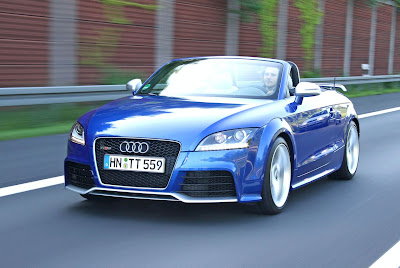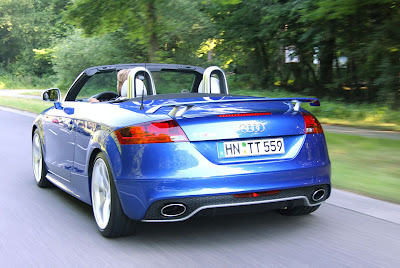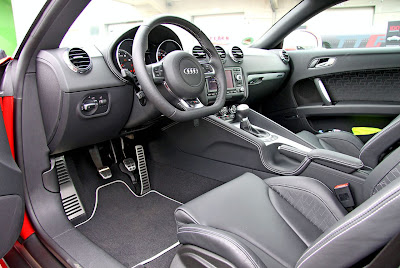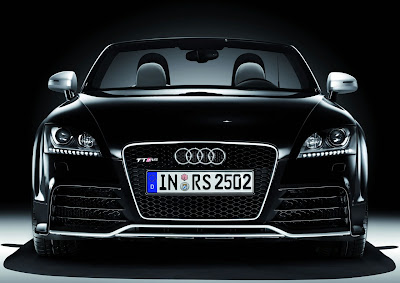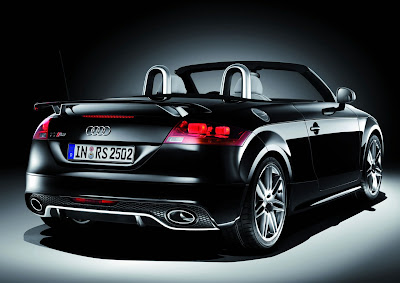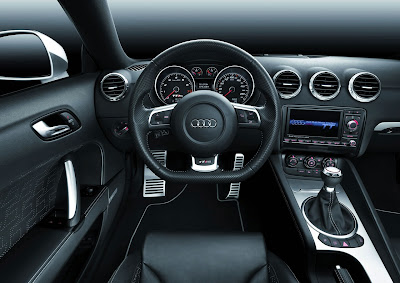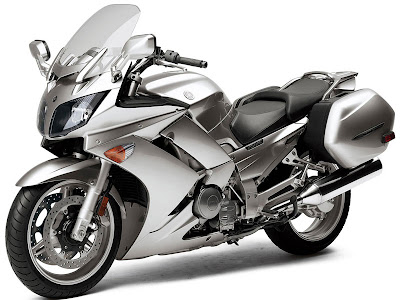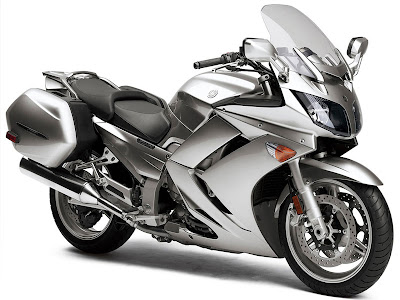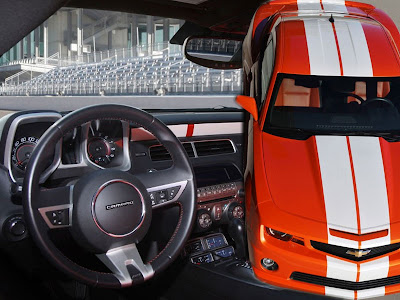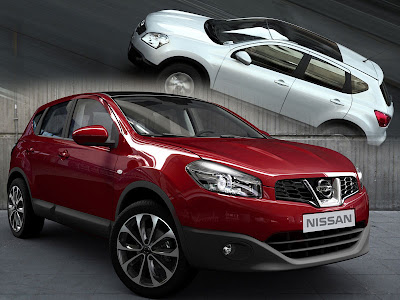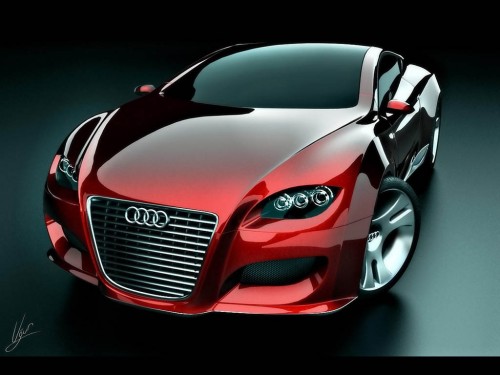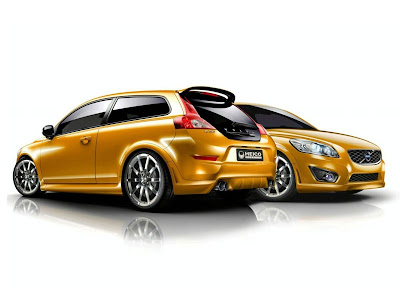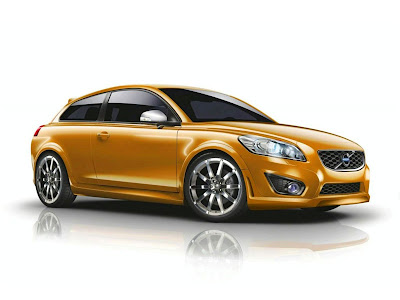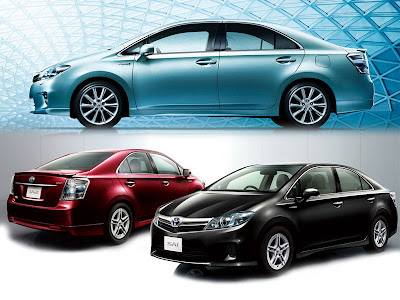
2010 Toyota SAI Hybrid Sedan
Toyota Motor Corp will be releasing a new petrol electric hybrid in Japan while the Prius will compete with Hyundai Motor Co in Korea. Toyota hopes to sell 36,000 of its new Sai hybrid sedan, Toyota’s goal being one million hybrid cars a year globally after 2010. The Sai is Toyota’s second hybrid-only car, this car is a redesign of the Lexus HS250 hybrid. The Sai is based on a concept derived from the Japanese word sai-which means "talent" when written as "" and "coloration" when written as ""-as a hybrid-only sedan "combining advanced talent and multi-color sophistication".
The Sai is based on the Lexus HS250h hybrid, a vehicle designed for people who want a more premium hybrid experience than they would get in the Toyota Prius. The Sai would seem to fit somewhere in between. It offers the same powerplant as the HS, but not quite as many luxury features. It's basically an HS with different nose, tail and interior detailing.
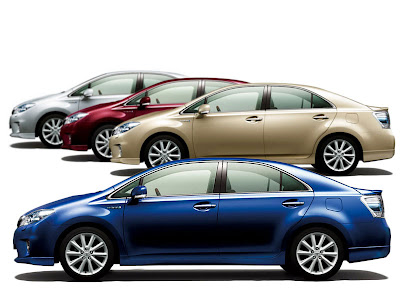
2010 Toyota SAI Hybrid Sedan
The Toyota Sai Hybrid features a gasoline-electric hybrid system with a 2.4-liter engine for outstanding fuel efficiency and use of Ecological Plastic for approximately 60% of the interior surface area. The Sai features the Toyota Hybrid System (THS) II combining a 2.4-liter Atkinson cycle combustion engine with an electric motor and a reduction gear. The Toyota Sai Hybrid uses a 2.4-liter petrol engine generating just under 150 horsepower, and up to 187 Nm of torque. It is mated to a strong electric motor, powered by a nickel-metal hydride battery, which produces an additional 140 hp and up to 270 Nm of torque. The Toyota Sai Hybrid powertrain is designed to utilize the two generators efficiently, giving the driver up to 185 hp at any given time.
An exhaust heat recovery system uses exhaust gas to heat the engine, thus shortening engine-warming time and contributing to greatly improved fuel efficiency, especially when outside temperatures are low.
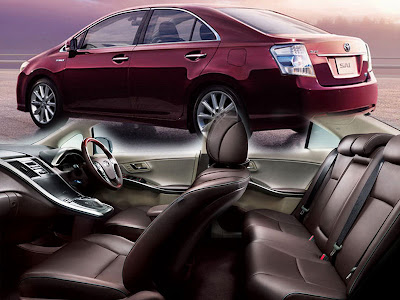
2010 Toyota SAI Hybrid Sedan
LED headlights conserve electric power and consequently reduce power-generation requirements on the engine. In addition to Standard Driving Mode, which balances fuel efficiency and power, drivers can also select Eco-Drive Mode, which prioritizes fuel efficiency by moderating driving force relative to accelerator operation and putting the air conditioner into a low energy-consumption mode, and Electric Vehicle (EV) Drive Mode, which uses the electric motor only, resulting in extremely quite cruising and zero emissions.
A Hybrid System Indicator that shows real-time driving status and an Eco Driving Indicator that lights up to signify fuel-efficient vehicle operation provide visual support to the driver. The ESPO1 system, which encourages and rewards environmentally considerate driving, enables drivers to gain extra enjoyment.
G-BOOK mX, TMC's advanced telematics service, assesses environmentally considerate driving and awards points to driver; mastery of eco-driving can be determined according to rate of points gained each month

2010 Toyota SAI Hybrid Sedan
Programs that allow drivers to make donations to charities using points received, that rank fuel efficiency of nationwide Sai ESPO users, and other fun incentives to encourage drivers to drive in environmentally considerate ways, are available. Toyota is also sending its brand to South Korea where the Hyundai Kia partnership dominate. The Prius and Camry hybrids will be first and joining them will be the petrol version of the Camry and the RAV4.
Toyota Executive Vice President Yukitoshi Funo told a news conference, “The introduction of the Toyota brand into South Korea is aimed to meet the diversifying needs of consumers in this growing market,”
“We intend to make every effort to contribute to South Korean society and earn a loyal following.”
December the seventh is the release date for the Toyota Sai retailing at 3.38 million yen ($40,250), the Lexus HS250 is priced at 3.96 million yen ($47,159). The Sai is expected to have a consumption rate of 4.34 liters per 100 km. At this stage Toyota has no plans to export the Sai, preferring to concentrate on the home market.





